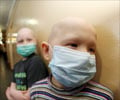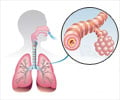- Safeguarding against respiratory viruses during the fall and winter season involves getting vaccinated, practicing good hand hygiene, and maintaining social distancing
- Additionally, boosting your immune system, staying informed, and adhering to recommended health measures can significantly reduce the risk of infection
- Following these essential tips is crucial in the face of the ongoing challenge posed by respiratory viruses, including COVID-19, influenza, and RSV
Respiratory Disease Season Outlook – Summary
Go to source).
A New Layer of Complexity
Traditionally, the fall and winter season sees the prevalence of respiratory diseases, along with COVID-19 has added a significant layer of complexity to our healthcare system.The CDC anticipates that this year's hospitalization figures for COVID-19, RSV, and flu will likely resemble those of the previous year. This means that the total number of hospitalizations for respiratory illnesses will remain higher than the pre-COVID-19 era.
At present, flu activity in the United States is relatively low. However, it is difficult to predict the timing, intensity, and severity of the upcoming flu season, but it is expected to rise during the fall and winter. The CDC continues to emphasize the importance of vaccination, especially for individuals at higher risk of severe complications, including older Americans and those with underlying medical conditions.
Safeguarding Against Respiratory Viruses: Essential Tips for the Season
Here are some key tips to help protect yourself during this challenging time.Get Vaccinated
: The most effective way to shield yourself from respiratory viruses is by getting vaccinated. Ensure you receive the flu vaccine, the COVID-19 vaccine, and any recommended vaccines for your age and health conditions.
Vaccination not only reduces your risk of infection but also lessens the severity of the disease if you do contract itPractice Good Hand Hygiene
: Regularly washing your hands with soap and water for at least 20 seconds is one of the simplest yet most effective measures to prevent the spread of viruses. If soap and water are not available, use an alcohol-based hand sanitizerWear Masks in Crowded or High-Risk Settings
: Wearing masks in indoor public spaces, especially when social distancing is challenging, can significantly reduce the risk of viral transmission. Use masks that cover both your nose and mouthMaintain Social Distancing
: Whenever possible, keep a safe distance (at least 6 feet) from individuals who are not part of your immediate household. Reducing close contact with those outside your circle is an effective means of preventing the spread of respiratory virusesGood Respiratory Hygiene
: Cover your mouth and nose with a tissue or your elbow when you cough or sneeze. Dispose of used tissues properly and wash your hands immediatelyBoost Your Immune System
: Eating a balanced diet, getting regular exercise, staying well-hydrated, and getting adequate sleep can all contribute to a robust immune system. Consider vitamin supplements if recommended by your healthcare providerStay Informed
: Stay updated with the latest guidance and recommendations from reputable health organizations like the Centers for Disease Control and Prevention (CDC) and the World Health Organization (WHO). Knowledge is power, and understanding the current state of respiratory viruses can help you make informed decisionsAvoid Close Contact with Sick Individuals
: If someone in your household is sick, try to isolate them from healthy family members. Use a separate bathroom if possible, and wear a mask when caring for the ill personDisinfect High-Touch Surfaces
: Regularly clean and disinfect frequently-touched surfaces such as doorknobs, light switches, and countertops. This helps prevent the persistence of viruses on surfaces in your homeRemote Work and Telemedicine
: Whenever feasible, consider remote work and telemedicine options. Reducing your exposure to crowded workplaces and healthcare facilities can help lower your risk of infectionTravel Wisely
: If you must travel, research and follow the guidelines and restrictions in place at your destination. Use masks and maintain precautions during your journey, including in airports and on public transportationStay Home When You're Sick
: If you are feeling unwell or showing symptoms of any respiratory illness, stay home to avoid spreading the virus to others
By following these practical tips, you can significantly reduce your risk of infection and help protect your community. Remember that vigilance and responsible behavior are our most potent tools in confronting these health threats.
Reference:
- Respiratory Disease Season Outlook – Summary - (https://www.cdc.gov/respiratory-viruses/whats-new/2023-2024-season-outlook.html)
















